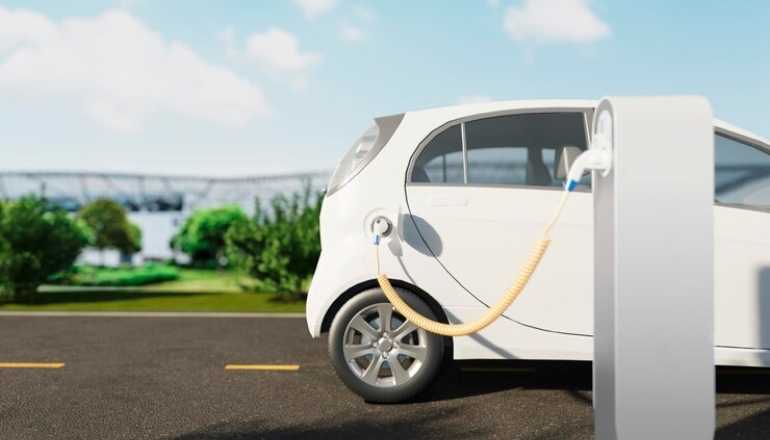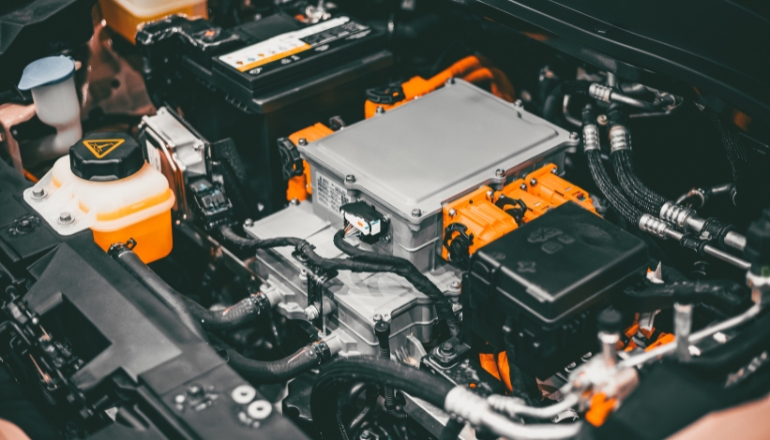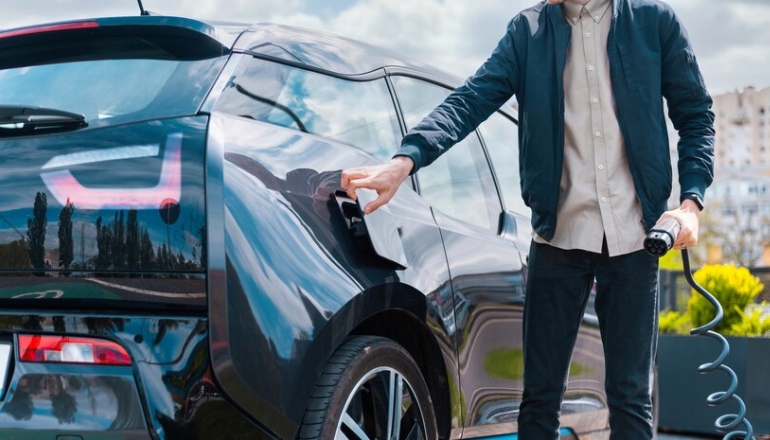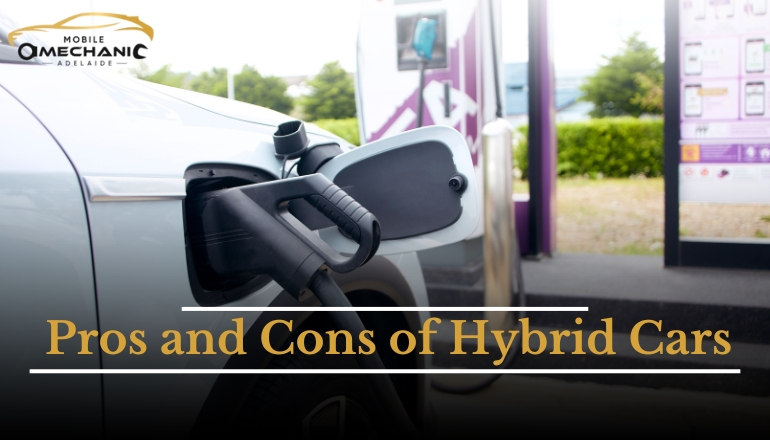With all the hype revolving around hybrid cars, people may often think their mechanism is complicated. But on the contrary, it is quite simple. Simply put, auto hybrid cars are the ones that have both gasoline and diesel engines, whereas hybrid engine cars are those powered by batteries. A hybrid has two things: a fuel-powered electric car engine and an electric motor (powered by a battery). Although servicing hybrid cars may seem complicated, the opposite is true.
There are, however, a few distinct sorts of hybrids that you should become familiar with, so if you’re thinking of getting them. This blog will discuss the benefits and drawbacks of hybrid cars, which vary depending on the type. Hybrid cars are becoming increasingly popular as they help reduce fuel usage and pollutants. Over 17 million hybrid vehicles have been sold worldwide since their introduction in 1997 and are often seen as a bridge between ICE vehicles and Electric Vehicles (EVs) for individuals not yet ready to go electric.
What is a Hybrid Car?

A hybrid vehicle combines two unique power sources: a typical internal combustion engine running on petrol and an electric propulsion system supplied by a rechargeable battery. This dual-power configuration enables hybrid automobiles to maximize fuel economy while lowering emissions, making them a more ecologically responsible alternative than conventional vehicles.
How Does a Hybrid Car Work?
The internal workings of a hybrid vehicle entail a fluid interaction between the gasoline engine and the electric motor. During low-speed or stop-and-go driving, the electric motor takes control, taking power from the battery while reducing gasoline usage. In contrast, the petrol engine offers extra power when driving at high speeds or under heavy loads.
A hybrid car’s capacity to transition between different power sources in response to driving demands is critical to its operation. This shift is made possible by a sophisticated management system that handles power distribution and ensures continuous functioning.
Should I Repair or Replace My Hybrid Battery?

In some cases, hybrid car battery maintenance can be an efficient way to extend its life. The magnitude of the damage primarily determines the strategy adopted.
1. If the Battery Has a Few Damaged Cells
Cells that are not replaced may develop badly in a short amount of time, resulting in poor electric car engine performance and dissatisfied customers. This may necessitate a mobile mechanic repair for a few broken cells.
A hybrid battery is made up of individual cells, although the exact number might vary depending on the hybrid vehicle’s make and type. Nonetheless, it is vital to recognize that most approaches are used to identify weak or defective cells. Car mechanic mobile services in Adelaide use a rigorous and time-proven procedure for producing a thorough “battery test report” that can be used on various hybrid vehicles. This complete report provides clients with exact suggestions and includes calibrating the battery pack.
2. If Most of the Battery’s Cells are Damaged
When a considerable proportion of the cells in your hybrid batteries have been damaged, replacing them with reconditioned ones is the best course of action. This technique is usually known as hybrid battery rejuvenation or reconditioning.
Hybrid battery reconditioning is a rigorous process of charging and balancing the cells within the battery. The actual hybrid battery replacement cost of this reconditioning procedure varies, ranging from around $890 to $1990, depending on the refurbished hybrid battery price.
It’s crucial to remember that if the price rises to the higher end of this range, it may be more cost-effective to replace the battery entirely. Why? Because the cost difference between reconditioning and replacing a new hybrid battery is typically negligible. While hybrid battery reconditioning can extend the hybrid car’s battery life by a few years, purchasing a new hybrid battery is typically a longer-term solution.
Pros of Hybrid cars
Hybrid cars offer several advantages, making them a popular choice for many drivers. Here are some of the pros of hybrid cars:
-
Better For The Environment
While hybrids, like EVs, are not zero-emission vehicles, they do reduce harmful greenhouse gas emissions from the exhaust, which means your hybrid is kinder to the environment.
Hybrids have an improved fuel economy when it comes to hybrid vs petrol. The benefit of having a battery pack is that you rely on your gas-guzzling ICE far less, lowering your fuel consumption and saving you money. Many hybrids will also allow you to drive in ‘all-electric’ mode for portions of the time, which means you could theoretically go without paying for petrol. PHEVs primarily run on electricity rather than fuel, with the former being significantly cheaper.
-
Improved Performance
Combining an ICE and an electric motor increases power and performance in a hybrid since electric motors require zero rpm to create maximum torque. In ideal conditions, you will receive electricity from both sources simultaneously.
-
No Range of Anxiety
There’s no need to worry about your battery running out of charge and leaving you stranded because the ICE is always available to give assistance and backup when needed. In the case of HEVs, there is no need to worry about charging because the automobile recharges the battery.
Cons of Hybrid Vehicles

Certainly, while hybrid vehicles offer many benefits, there are some drawbacks to consider:
-
Cost
While hybrid prices have gradually decreased as their popularity has grown, they remain more expensive than ICE cars, which may dissuade some. It might be claimed that gasoline savings offset this expense. However, it does not change the fact that upfront prices remain higher.
-
Maintainance Cost
Because the car has both an ICE and a battery pack/electric motor, there is a greater chance that something may go wrong, making repair costs higher. Battery degradation over time is another thing to consider; however, this normally occurs over years.
Hybrid vehicles are more complex than traditional gasoline-powered cars, with dual powertrains that combine an internal combustion engine with an electric motor and battery. This complexity can lead to higher maintenance costs, as repairs and servicing for hybrid components may require specialized knowledge and parts. However, mobile mechanic repair services can offer a solution to this problem.
-
Charging Infrastructure
PHEVs, of course, require charging, which is simple to do at home, but if you’re out and about looking for a public charger, you may notice that Australian electric auto charging station infrastructure isn’t quite where it should be (although the number of public chargers is growing across the country, which is encouraging).
-
Luggage space
Using large battery packs in hybrids, particularly PHEVs might reduce baggage capacity within the car.
Conclusion
The higher upfront cost of hybrid motor vehicles makes them less attractive to potential buyers despite their benefits, like fuel efficiency and reduced emissions. A common concern associated with fully electric vehicles is that they require external charging infrastructure. Hybrids, however, can self-charge, eliminating this need. Manufacturers are revolutionizing their industries with hybrid cars in Australia, paving the way for sustainable transportation.
In addition to reducing carbon footprints, these vehicles offer environmentally friendly cars solutions to transportation. Hybrid technology has increased accessibility and refinement, making it easier for us to commute and live a healthier lifestyle. It reflects a collective commitment to environmental responsibility that green alternatives are becoming more popular.
FAQ’s
What happens when a hybrid car runs out of battery power?
When a hybrid car’s battery runs out of electricity, the petrol engine kicks in to keep the vehicle running while also charging the high-voltage battery system. This applies to both standard gasoline-electric hybrids and plug-in hybrid electric vehicles (PHEV). If the high-voltage battery system is completely depleted, the mobile mechanic repair vehicle cannot operate because it relies on the petrol engine for power.
How does the fuel efficiency of hybrid cars compare to traditional vehicles?
Hybrid automobiles are frequently more fuel-efficient than conventional vehicles, while the fuel efficiency of plug-in hybrids (PHEVs) fluctuates depending on how often they are charged. When a hybrid car’s battery runs out of electricity, the petrol engine kicks in to keep the vehicle running while also charging the high-voltage battery system.
Can hybrid cars run on fuel only?
Yes, hybrid vehicles may only run on petrol. If the hybrid car’s battery is permanently discharged, one may use the petrol engine to keep the vehicle running. However, we suggest consulting a mechanic’s mobile to prevent the battery system from being completely depleted.
